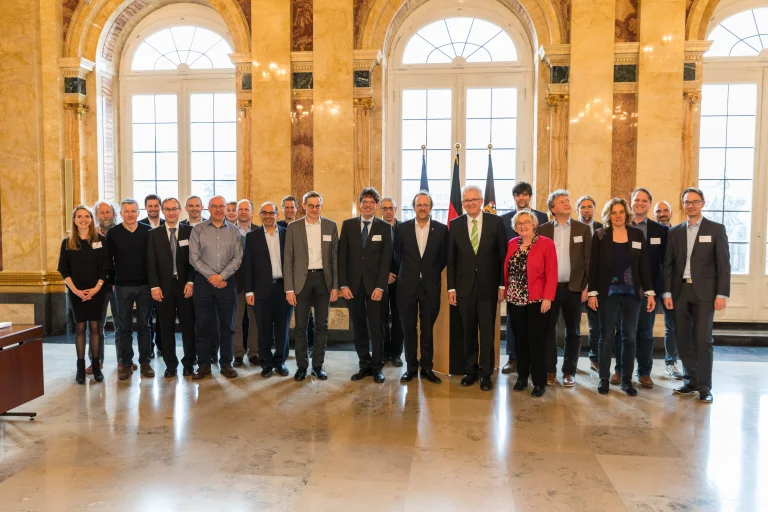



Leading European AI scientists issue a call to action
Stuttgart - Several European countries have expressed a strategic interest in machine learning and artificial intelligence, and the desire to invest in these fields. To discuss recommendations addressing this, many of Europe's leading scientists in the field of machine learning, a core area of artificial intelligence (AI) research, last Wednesday met with Baden Württemberg’s Minister President Winfried Kretschmann and Science Minister Theresia Bauer at the Neues Schloss in Stuttgart. Researchers from the UK, Germany, France, Switzerland, Italy, Israel, the Netherlands, Finland, Spain, and the Czech Republic gathered as part of a meeting hosted by the Royal Society and Leopoldina, the UK’s and Germany’s National Academies of Science.
Strategic needs had already been outlined in an open letter published by the ELLIS initiative (European Laboratory for Learning and Intelligent Systems) in early 2018. Since then, ELLIS has made significant steps forward, and can now offer scientific support to implement a set of concrete measures. The workshop participants consider the following measures urgent, and suggest that European governments fund them through existing programs or targeted new measures.
Invest in infrastructure
Increase computing and storage capacity
Modern AI methods require training on large datasets, and improving upon the state-of-the-art requires extensive experimentation, and thus access to major computing capacity. While AI groups across Europe are producing excellent research and publishing at top conferences, computing capacity is becoming a limiting factor in their impact, contributing to a declining share of top research publications in the field coming from Europe. The ELLIS initiative proposes that each European country should significantly step up investments into high performance computing suitable for machine learning. A country the size of Germany should invest EUR 25 million in 2019 (across Europe, around four times this sum is needed), and consistently follow up with additional funds in subsequent years. Decisions to allocate such resources could be fast and unbureaucratic if they were based on publishing performance at leading international conferences.
Launch an initial set of institutes and research units in different European countries
Highly innovative ecosystems emerge at outstanding academic institutions like Stanford, Berkeley, MIT, or ETH, which serve as international talent magnets and incubators of innovation. In modern AI, industrial innovation and cutting-edge academic research go hand in hand. New research institutions both private (DeepMind, Google Brain, Facebook AI Research, Open AI) or public (Vector Institute, MILA) try to serve this dual role by offering agile environments and infrastructure. The ELLIS initiative’s long-term goal is to establish a European laboratory inspired by the model of the European Molecular Biology Laboratory (EMBL) (https://ellis.eu/en/letter). It will comprise “ELLIS Institutes” that attract outstanding scientists and provide them with the means to generate scientific, economic, and societal innovation.
The legal and financial basis for a full-fledged European laboratory similar to the EMBL model calls for the strong commitment of national governments as well as intergovernmental coordination. At this point, countries (or federal states) willing to invest (both within and outside the EU) should set up a working group. Meanwhile, the scientists propose that both smaller “ELLIS Units” be established at existing institutes, and that larger “ELLIS Institutes” be prepared. An ELLIS Unit will have an annual budget of at least EUR 1.5 million, while a fully-fledged ELLIS Institute will require more significant resources (building costs as well as an annual budget increasing to EUR 30 million). Most larger European countries should consider setting up one or more ELLIS Institutes.
Invest in excellent research
Launch a set of at least five ELLIS Programs to drive excellent research in key areas of interest
These programs, directed by outstanding European researchers and including the most promising researchers as Program Fellows, will focus on high-impact problem areas that have the potential to move the needle in modern AI. They will bring together academics at regular meetings throughout Europe, provide them with a stipend to be used freely for research, and help create a European community of top AI researchers, which retains and attracts talent. EUR 2 million should be spent on this in 2019, with another EUR 2 million annually per program starting in 2020, growing to 10 programs in the following years.
Support early career awards for PhD graduates in AI
Efforts to create attractive offers for outstanding international scientists such as Germany’s Humboldt Professor program are commendable, but progress in AI is also significantly driven by young PhD graduates, who currently often prefer attractive industry jobs to university postdoc positions. The ELLIS initiative proposes setting up early career awards that will encourage truly outstanding international graduates to do an academic postdoc. Awards should help reduce the salary gap to industry positions and include funding to visit international labs. Across Europe, such a program should grow to a size of EUR 10 million annually.
Invest in training and outreach
Financial support of ELLIS PhD program
The primary goal of the PhD program is to attract international talent to Europe, with downstream impact on both basic research and entrepreneurship. This will not only benefit the top labs, but also labs that are still catching up: excellent PhD students work throughout Europe and sometimes cannot realize their full potential in a lab with insufficient funding or lacking a critical mass of senior talent. Towards this goal, the recruited PhD students will spend one year abroad at another ELLIS site or within a partner network, and central ELLIS funds should provide 50 percent funding for PhD students. In addition, regular bootcamps, summer/winter schools, and workshops will be organized. Mobility grants will allow outstanding students to spend internships at leading labs and thus contribute to spreading ML expertise throughout Europe. With an initial target network of 200 PhD students, the ELLIS PhD program will require an annual investment of EUR 10 million across Europe.
Take steps to develop a pool of “AI-ready” researchers from a broad range of backgrounds and disciplines
The application of machine learning (i.e. data-driven AI) across industry sectors offers significant economic and social benefits. To bring these benefits into being safely and rapidly, and to meet the demand from European industry for talent in data-driven AI, building a broad and diverse talent pool will be decisive. A range of mechanisms can help achieve this, including summer schools, bootcamps, and traineeships for researchers and developers working in other research areas. ELLIS would be willing to engage in developing some of these measures.
Introduce key machine learning concepts in schools
All citizens would benefit from understanding key concepts in machine learning, and addressing the lack of diversity in AI requires getting minority groups engaged from a young age. A recently launched contest (http://bw-ki.de) for German high school students prepares our next generation for the challenges of a digital AI society by enabling them to learn about machine learning and submit their own projects. For 2020, ELLIS is willing to host a similar contest at the European level.This would require support of EUR 1 million per year.
